The Latin American Pope

The Latin American Pope
How Pope Francis’s Argentine roots shaped his geopolitics.
Pope Francis waves to crowds during World Youth Day celebrations in Rio de Janeiro, Brazil, on July 26, 2013. Buda Mendes/Getty Images
Welcome back to Foreign Policy’s Latin America Brief.
The highlights this week: Pope Francis’s legacy is shaped by his Argentine upbringing, the International Monetary Fund issues gloomy new projections amid shifts in U.S. trade policy, and a Peruvian Indigenous leader is honored for her environmental activism.
Welcome back to Foreign Policy’s Latin America Brief.
The highlights this week: Pope Francis’s legacy is shaped by his Argentine upbringing, the International Monetary Fund issues gloomy new projections amid shifts in U.S. trade policy, and a Peruvian Indigenous leader is honored for her environmental activism.
Pope of the Peripheries
Pope Francis, who died Monday at age 88, was arguably the most influential Latin American in world politics this century. Born Jorge Mario Bergoglio in Buenos Aires, Argentina, he was the first modern pope from the global south.
Throughout his papacy, Francis remained “very Argentine” as well as a “global politician,” editor Hernán Vanoli wrote on social media on Monday.
Loris Zanatta, a historian and author of a political biography of Francis, described Francis’s politics as “third-worldist” in an interview with Foreign Policy and said that the late pope’s biggest legacy will be “distancing Catholic Christianity from its Western European roots.”
Indeed, Francis bucked tradition by focusing outreach on the Catholic Church’s fastest-growing regions—Africa and Asia—and showing openness to diverse forms of worship. He also embraced elements of African Catholicism that could be described as more charismatic or “magical” than its Western European counterparts, Zanatta said.
Those practices were familiar to Francis. Before becoming pope, he was an adherent of the Argentine tradition called the theology of the people, which celebrates religious practices of working-class Argentines, including at times emphasizing the mystical and miraculous.
Francis was a friend to other world religions and met with imams and rabbis to discuss interfaith dialogue and issues such as climate change. He also gestured toward Indigenous traditions: An event that he led in 2019 to discuss the church’s policies in the Amazon was decorated with statues of the Indigenous fertility figure Pachamama, angering Catholic traditionalists.
Francis’s geopolitical experience began long before becoming pope. In his 30s and 40s, he witnessed Argentina’s military junta—backed by a Cold War alliance of right-wing regional governments—jail some of his Jesuit peers over perceived leftist sympathies. As pope, Francis spoke about the dangers of a potential new cold war, warning that the world should not divide into “opposing blocs.”
Technically, the Vatican is bound by a 1929 neutrality treaty, but past popes have stepped into the big political struggles of the day. John Paul II, for example, played an important role in the fall of Eastern European communism in the 1980s. Francis’s nonaligned stance allowed him to mediate in high-profile negotiations, such as the secret talks that led to the opening of formal diplomatic relations between the United States and Cuba in 2014. (U.S. President Donald Trump later reversed the move.)
Francis’s nonalignment was seen in other initiatives. Though China cut formal ties with the Catholic Church in 1951, Francis worked to rebuild them through a deal regarding the appointment of bishops in China in 2018. When Russia invaded Ukraine in 2022, Francis condemned the war and tried to mediate, prompting criticism from Ukrainians for not singling out Russia as the aggressor.
During his papacy, Francis became one of the most popular political figures in Latin America and remained so until the end of his life. In some ways, that popularity was a paradox, because the number of Latin Americans who identify as Catholic decreased during his tenure.
Francis’s vocal exhortation on climate activism is also a key part of his legacy, which resonated with many Catholics across the region.
Paulo Sampaio, 27, a Catholic from rural northeast Brazil, told Foreign Policy that Francis’s 2015 papal letter on climate stewardship “totally converted me to social and environmental activism.” Sampaio has become an organizer of interfaith climate events across Brazil in the runup to November’s U.N. Climate Change Conference.
Upcoming Events
Saturday, April 26: Pope Francis’s funeral is held in the Vatican.
Monday, April 28, to Tuesday, April 29: BRICS foreign ministers meet in Brazil.
Monday, May 12, to Tuesday, May 13: Brazilian President Luiz Inácio Lula da Silva visits China.
What We’re Following
U.S. intelligence on Tren de Aragua. A new assessment drawing on 18 U.S. intelligence agencies concluded that the gang Tren de Aragua is not directing an invasion of the United States at the behest of Venezuelan President Nicolás Maduro, the Washington Post reported last week. This refutes Trump, who has used such reasoning to justify deportations.
All but one of the agencies that contributed to the report said that ties between the gang and the Maduro government are limited to low-level contacts, according to the Post, while the FBI assessed a moderate level of cooperation between the gang and the government.
The agencies report to the Office of the Director of National Intelligence, which called the report “propaganda” by “deep state actors.”
A member of the dissident FARC guerrilla patrols next to coca crops in Micay Canyon, southwestern Colombia, on March 24, 2024.Raul Arboleda / AFP via Getty Images
Drug policy contradictions. Colombian President Gustavo Petro has made pushing back against the logic of the war on drugs a priority, with mixed results. His administration’s approach of seeking cease-fires with rural armed groups—rather than to fight them outright, as in previous administrations—has often stumbled.
But last month, a Colombia-backed resolution proposing reform to the United Nations framework on international drug policy was approved. U.N. recommendations, which have historically favored drug prohibition, are influential in shaping local legislation.
Still, the Petro administration went back on its own principles this month by restarting chemical fumigation of coca crops—a policy that it has long criticized as counterproductive. That reflects concerns that the Trump administration will classify Colombia as uncooperative on drug issues, potentially putting tens of millions of dollars’ worth of military cooperation at risk.
Peru’s “Green Nobel.” This year’s Goldman environmental awards, often called the “Green Nobel Prize,” honored Indigenous Peruvian activist Mari Luz Canaquiri Murayari, who spearheaded a lawsuit that won legal personhood for Peru’s Marañón River last year.
The river is a tributary of the Amazon River, and Indigenous groups have denounced its contamination by industrial groups—especially oil spills by state company Petroperú.
Canaquiri and colleagues are now pushing for the ruling’s implementation. That will be harder, she said, after the recent passage of a law that hampers civil society groups’ ability to litigate against the Peruvian government.
Question of the Week
Which of the following jobs did Pope Francis not hold in his youth?
Nightclub bouncer
Tango dancer
Chemical lab assistant
Janitor
Francis enjoyed tango but did not work in the sector. As pope, he was honored on his birthday in 2014 by a mass tango dance near St. Peter’s Square in Vatican City.
FP’s Most Read This Week
- Trump Is Losing Asia by Robert A. Manning
- How Generations of Experts Built U.S. Power by Jeremi Suri
- Why Authoritarians Attack Universities First by John Haltiwanger
In Focus: New IMF Forecasts
A person walks past an International Monetary Fund headquarters building during the 2025 spring meetings of the World Bank Group and the IMF in Washington on April 22.Bryan Dozier / Middle East Images via AFP via Getty Images
The International Monetary Fund (IMF) on Tuesday issued an update of its global economic forecasts in light of the Trump administration’s escalatory tariffs.
The IMF’s projections were calculated based on data up to April 14. Though much remains uncertain, the forecast for Latin America echoed what many analysts in the region have argued: Trump’s policies will have dramatically different short-term consequences for Mexico than for South America.
In January, the IMF predicted that Mexico’s economy would grow 1.4 percent this year, but the organization now expects a recession, with the economy shrinking 0.3 percent. Meanwhile, Brazil—whose agricultural exports to China grew during Trump’s first-term trade war—is poised to fare better, with a projected drop from 2.2 to 2 percent.
Altogether, South America’s projected 2.5 percent economic growth rate is only slightly lower than the worldwide rate of 2.8 percent. It is relatively healthy in part because the IMF predicts blockbuster 5.5 percent growth in Argentina as President Javier Milei proceeds with sweeping economic reforms.
Inflation numbers were more pessimistic: The IMF anticipates that inflation will be more than 4 percent in Brazil, Chile, Colombia, and Uruguay—and a whopping 15.1 percent in Bolivia. Those levels are mostly jumps from last year. Though Trump’s trade policy may hurt South America less than other world regions, pain for consumers may be unavoidable.
Catherine Osborn is the writer of Foreign Policy’s weekly Latin America Brief. She is a print and radio journalist based in Rio de Janeiro. X: @cculbertosborn
More from Foreign Policy
-

An illustration shows a line of large shopping carts facing down a small Donald Trump figure holding two shopping bags. The stars of China’s flag are in the upper left corner. Why Beijing Thinks It Can Beat Trump
China’s elites have a new confidence in their own system.
-

U.S. Army Chief of Staff Randy George speaks to U.S. soldiers at the Hohenfels Training Area in southern Germany on Feb. 6. A Drawdown of U.S. Forces in Europe Is All but Certain
Here’s how the Pentagon can rebalance its approach to the continent without sacrificing U.S. interests.
-

University of California, Los Angeles students, researchers, and demonstrators rally during a “Kill the Cuts” protest against the Trump administration’s funding cuts on research, health, and higher education in Los Angeles on April 8. Why Authoritarians Attack Universities First
A Yale professor and expert on fascism talks about why he’s leaving the United States under Trump.
-

Dwight D. Eisenhower looks over a piece of paper while sitting on a couch as Robert Cutler looks over his shoulder. How Generations of Experts Built U.S. Power
And now Trump is throwing it all away.

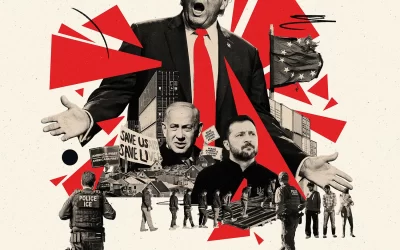



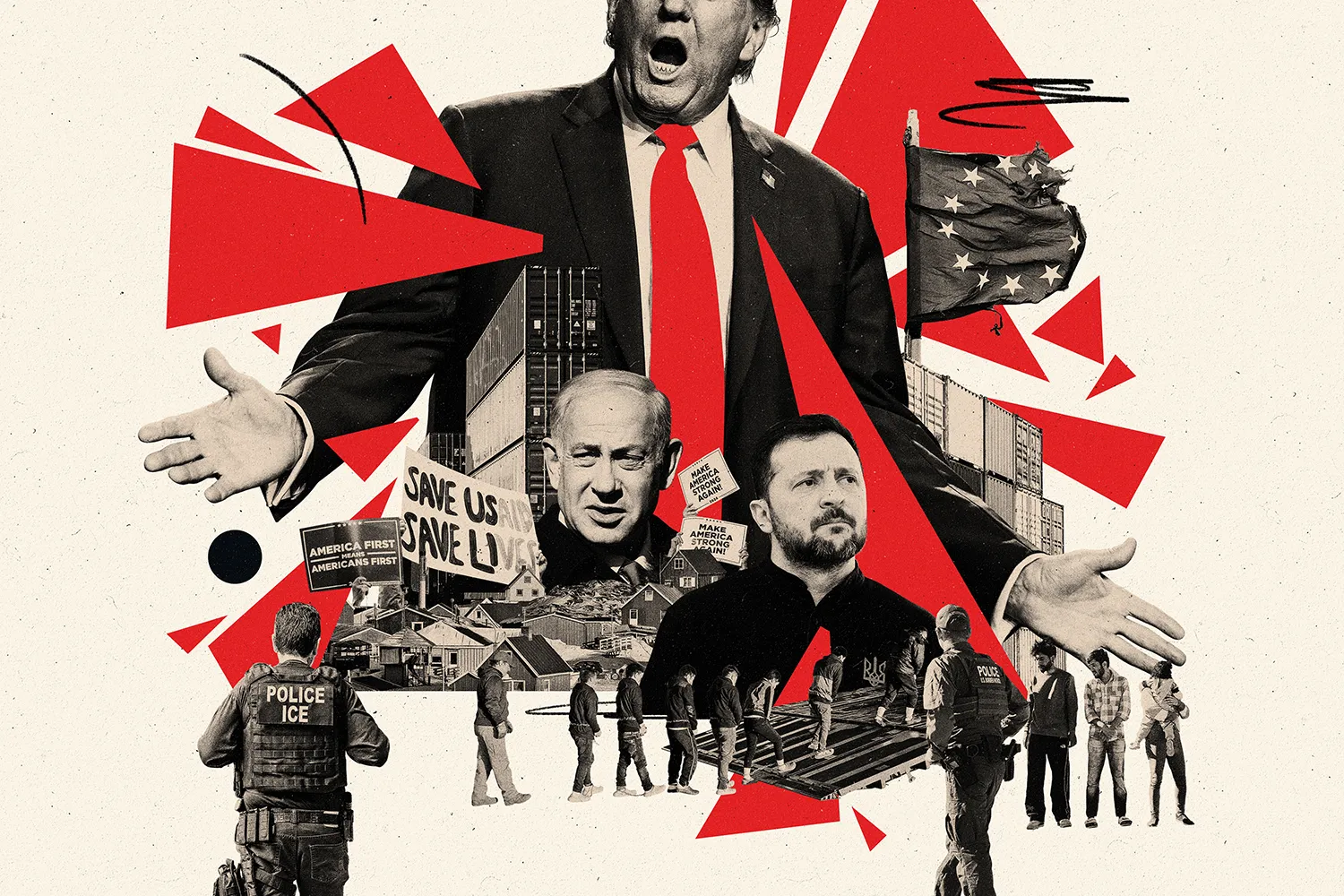
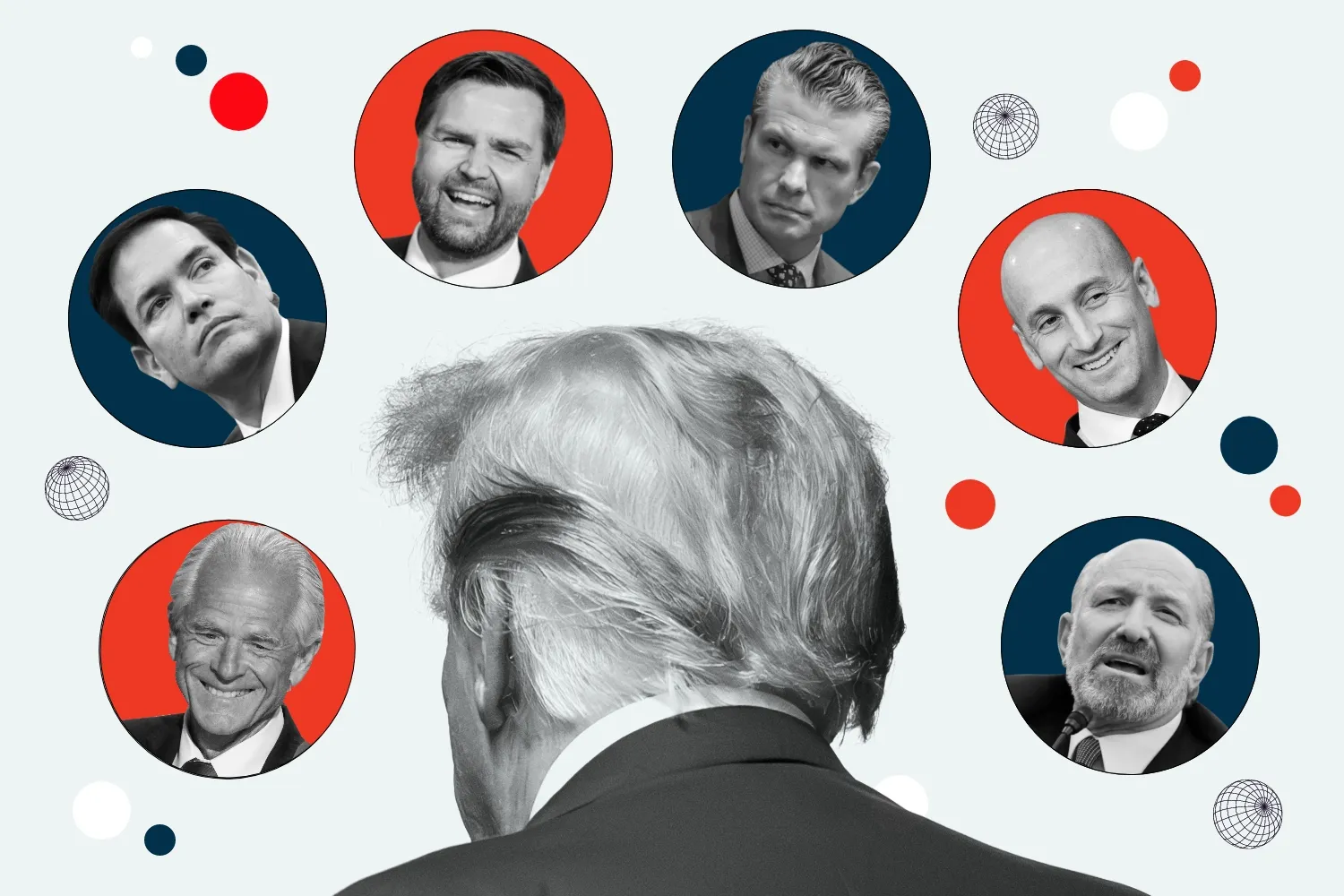
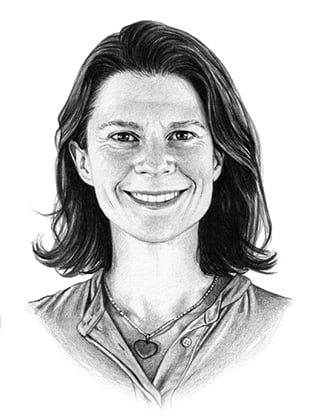
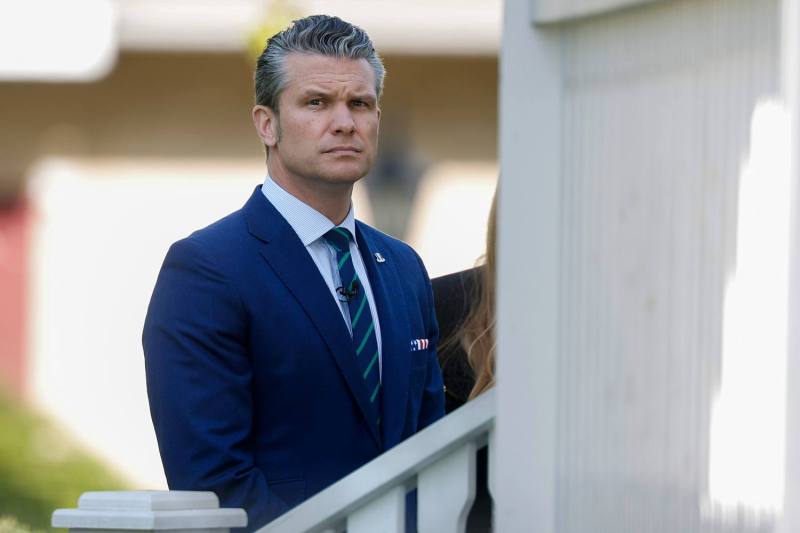
Join the Conversation
Commenting on this and other recent articles is just one benefit of a Foreign Policy subscription.
Already a subscriber?
.
Subscribe
Subscribe
View Comments
Join the Conversation
Join the conversation on this and other recent Foreign Policy articles when you subscribe now.
Subscribe
Subscribe
Not your account?
View Comments
Join the Conversation
Please follow our comment guidelines, stay on topic, and be civil, courteous, and respectful of others’ beliefs.
Change your username |
Log out
Change your username:
CANCEL
Confirm your username to get started.
The default username below has been generated using the first name and last initial on your FP subscriber account. Usernames may be updated at any time and must not contain inappropriate or offensive language.